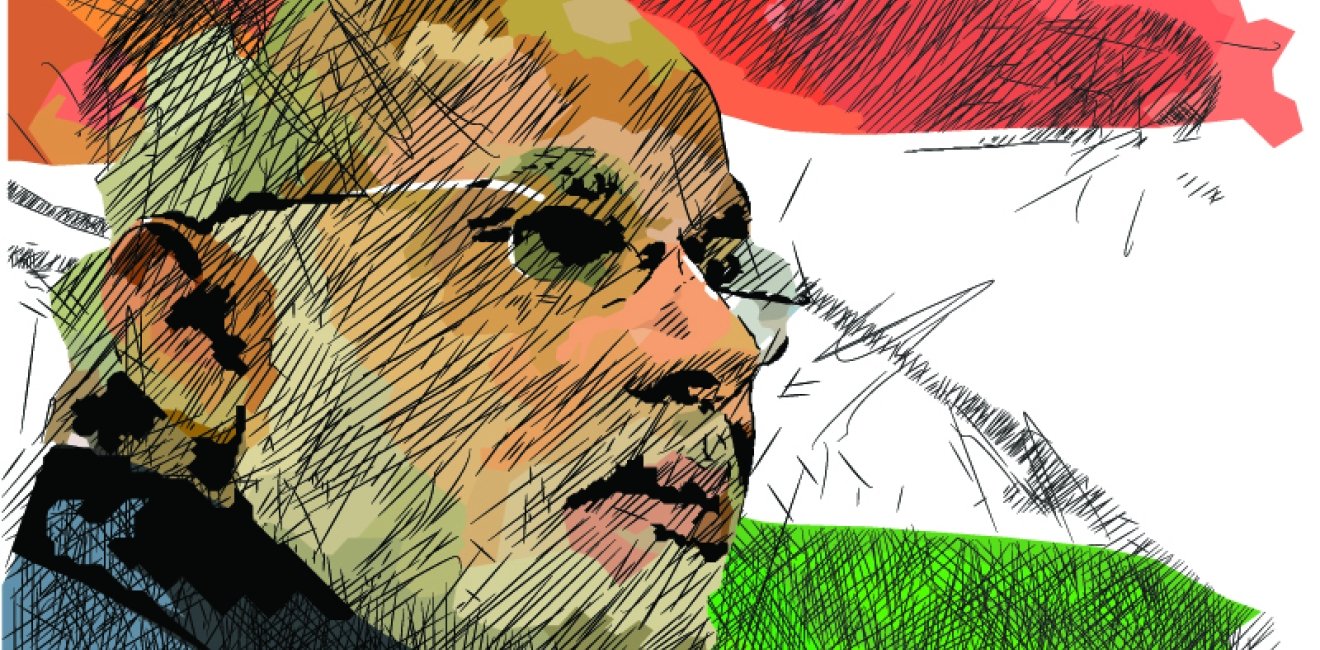
A blog of the Indo-Pacific Program
There was no shortage of topics for discussion among delegates at this year’s iteration of the Shangri-La Dialogue (SLD) held in Singapore earlier this month, the spotlight was on Indian Prime Minister Narendra Modi who gave his first keynote address to Asia’s premier security summit since it was inaugurated in 2002. While Modi’s speech articulated India’s approach to the region more generally, there was a particular focus given to New Delhi’s development of its defense partnerships with Southeast Asian states that deserves attention for the developments we have seen and the opportunities and challenges therein.
Indian involvement in Southeast Asia as part of its wider approach to the Indo-Pacific has long been evident, be it in terms of New Delhi’s centuries-old historical ties to the subregion or its deeper economic engagement under the post-Cold War ‘Look East’ Policy. But the case for this has deepened over the years because of the confluence of several regional trends, including the continuing rise of India as a major power and actor, anxieties about some aspects of Chinese behavior and the state of the rules-based order, and Southeast Asia’s development as a more prosperous and significant region in its own right.
Even as progress has been uneven and slow, the gains have not been insignificant.
Given all this, it is no surprise that we have seen the Modi government further elevate its strategic engagement with Southeast Asia as part of its so-called ‘Act East’ Policy first promulgated back in 2014. Despite lingering doubts in some regional capitals about how that rhetoric is translating into reality, the Modi government nonetheless deserves credit for the positive steps it has taken in this direction, including the unprecedented decision to invite all ASEAN leaders to attend India’s Republic Day celebrations in January as part of a commemoration of the 25th anniversary of the ASEAN-India dialogue partnership this year.
Within that broader vision, Modi’s ‘Act East’ Policy has also begun having notable gains for India’s ties with Southeast Asian states on the defense side as well. Even as progress has been uneven and slow, the gains have not been insignificant, be it new exercises with Malaysia and Myanmar, an agreement with Singapore on logistics support at the strategic Changi naval base, and a defense credit line extended to Vietnam. This is in addition to the ongoing work on areas such as cybersecurity and counterterrorism with individual ASEAN states as well as in multilateral forums.
Modi’s debut at the SLD provided an opportunity for him to articulate India’s broader vision for the Indo-Pacific and the role of Southeast Asia and ASEAN within it, and it was an opportunity that he appeared keen to seize. Indeed, in a powerful testament to the role of the subregion in India’s wider foreign policy approach, ahead of his keynote address, Modi visited both Indonesia and Malaysia to reinforce two priority countries in India’s approach to Southeast Asia. The Indonesia leg in particular saw some notable security-related developments, including an agreement for New Delhi to get access to port facilities in the strategically located island of Sabang that flanks the northern end of the Malacca Strait.
In his keynote address at the SLD, Modi suggested that India was willing to go still further with respect to advancing New Delhi’s security ties with Southeast Asian states. He cited some examples on this front, including further multilateralizing India’s defense exercises with Southeast Asian countries and also including more of these countries in New Delhi’s own defense initiatives, including those based in the Indian Ocean. Other efforts are also underway but did not make the speech, including elevating defense consultations with individual countries and enhancing capacity building and expertise sharing.
To be sure, close observers of ASEAN-India ties know full well that advancing all of this has not been without its challenges.
Indian officials have suggested that more steps are expected through this year and beyond. In just one example of what these may entail, just last week, Indian Defense Minister Nirmala Sitharaman visited Vietnam in a voyage to mainland Southeast Asia that balanced out Modi’s maritime Southeast Asia outreach. Though Sitharaman’s trip did not generate as many headlines as Modi’s address, she made a powerful case for the involvement of the private sector in the development of India’s defense relationships and also presided over the opening of a regional office of one of India’s leading defense firms Bharat Electronic Limited in Hanoi.
To be sure, close observers of ASEAN-India ties know full well that advancing all of this has not been without its challenges. On the Indian side, bureaucratic obstacles at times continue to slow the development of some defense initiatives, and there are limits to the extent New Delhi is willing to go on issues that are of concern to Southeast Asian states such as the South China Sea. For some Southeast Asian states, though engaging with New Delhi is a priority, there is still a tendency to be cautious in how advances are calibrated relative to other states, including China, as part of a wider omnidirectional foreign policies. And despite the willingness of both sides to work together in some areas as a general priority, the extent to which they make inroads on areas like defense industry will be contingent on not just broad notions of strategic alignment, but other more specific factors, such as the compatibility of systems and their ability of companies to compete.
But to paraphrase Modi in his keynote address, just because these challenges exist does not mean that building a firmer foundation for ASEAN-India defense relations necessarily has to be as elusive as that fictional, mythical, utopian notion of Shangri-La. New Delhi and Southeast Asian states can shape their own destiny, including in the security realm, if they continue to work to find ways to collaborate in spite of the differences they have and the issues they face.
The views expressed are the author's alone, and do not represent the views of the U.S. Government or the Wilson Center. Copyright 2018, Asia Program. All rights reserved.
Image: sambeet / Shutterstock.com
Author

CEO and Founder, ASEAN Wonk Global, and Senior Columnist, The Diplomat

Indo-Pacific Program
The Indo-Pacific Program promotes policy debate and intellectual discussions on US interests in the Asia-Pacific as well as political, economic, security, and social issues relating to the world’s most populous and economically dynamic region. Read more





